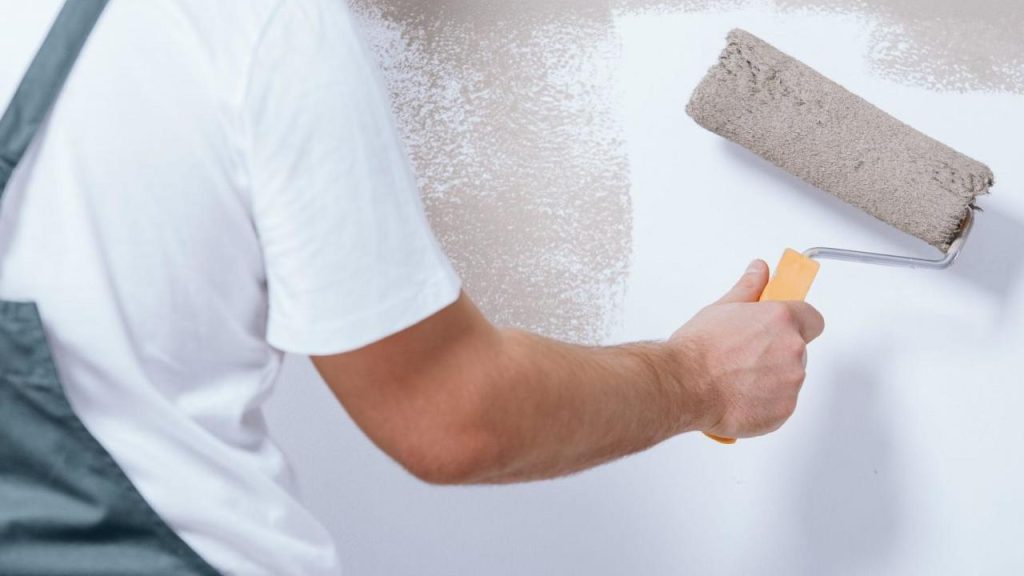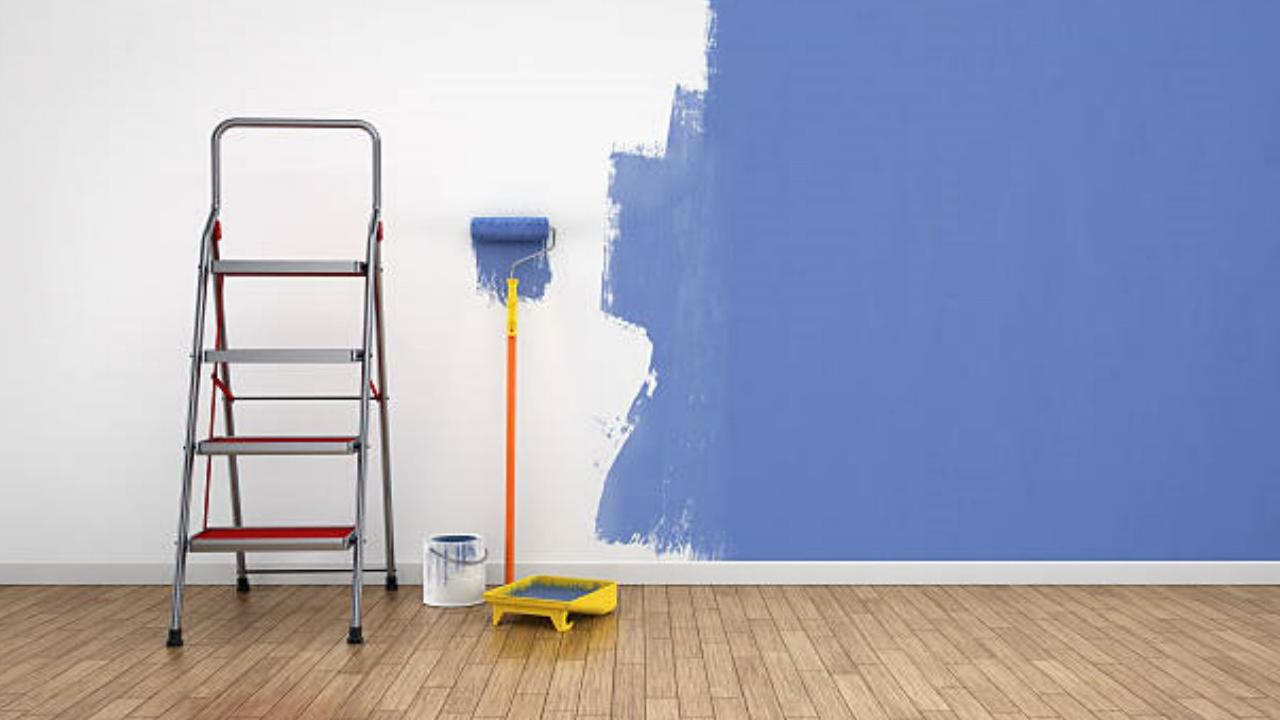Paint is one of the most commonly used materials for home decorating and renovation projects. But like any product, paint has a shelf life. Understanding how long paint lasts can help you avoid wasting old paint that has expired, or running into problems with peeling and chipping down the line.
In this guide, we’ll cover:
- Factors That Impact Paint Shelf Life
- Signs Your Paint Has Gone Bad
- How to Extend the Life of Paint
- How Long Different Types of Paint Last
– Latex Paint
– Oil-Based Paint
– Specialty Paint Types
- Frequently Asked Questions
Factors That Impact Paint Shelf Life
How long your paint lasts depends on a variety of factors, including:
- Paint ingredients: The ingredients used to manufacture paint impact its usable life. Oil-based paints generally last longer than latex.
- Storage conditions: Leaving paint cans open, storing them in extreme temperatures, and freezing/thawing cycles can accelerate spoilage.
- Air exposure: Once a paint can has been opened and exposed to air, the paint will start to oxidize and become unusable much faster.
- Container size: Paint stored in smaller containers like quarts and sample sizes tends to expire faster than large 1-5 gallon buckets with less air space.
Following the manufacturer’s storage instructions, limiting air exposure, and buying the right amounts for your project will all help maximize shelf life.

Signs Your Paint Has Gone Bad
Here are some telltale signs that your leftover paint is no longer useable:
- Color changes: The paint may darken or change hues if it has started to spoil.
- Texture changes: Bad paint often becomes clumpy or stringy and loses its smooth consistency.
- Separation: The components of the paint formula may start to separate, with solids sinking to the bottom of the can.
- Strong odor: Rancid odors indicate the paint has spoiled.
- Mold: If you spot mold growing in the paint, it should be discarded.
- Difficulty mixing: Paint that won’t smooth out and mix properly even after extensive stirring is well past its prime.
Testing paint on a small area before starting painting projects can reveal any deterioration in quality.
How to Extend the Life of Paint
Here are some tips for getting the longest use possible from your leftover paint:
- Store cans airtight in climate controlled areas: Don’t leave paint outside in freezing or hot temps. A garage or basement are ideal.
- Seal lids tightly: Cover paint cans properly and hammer the lids down if needed to limit air exposure.
- Use shelf life extenders: Adding paint preservatives can double the shelf life of latex and oil-based paints.
- Use suitable container sizes: Buy only as much paint as you need and opt for smaller quarts or sample sizes when possible.
- Fill empty space in cans: Once a paint can is open, fill empty space in the can with marbles or paint can lid inserts to limit air.
- Store upside down: Turn paint cans upside down to create a tight seal and prevent paint from interacting with oxygen.
Following proper storage methods can add years to your paint’s lifespan.
How Long Different Types of Paint Last
Different paint formulas have varying shelf lives. Here is an overview of how long some common household paints last:
Latex Paint
Latex (or acrylic) paints are water-based and easier to apply and clean up than oil paints. Unopened cans of latex paint typically last:
- 2+ years from the manufacturing date if stored properly.
Once opened, latex paint lasts:
- 6-12 months if carefully resealed and stored correctly.
- 4-6 weeks if left open with air exposure.
Adding preservatives when you first open the can will extend the lifespan several more months. Properly stored latex paints can remain usable for up to 15 years unopened.
Oil-Based Paint
Oil-based paints are more durable than latex paints and contain strong solvents. Sealed cans of oil-based paint generally last:
- 5-10 years or more if stored in climate-controlled conditions.
After opening, oil paints last:
- 6-12 months if resealed airtight and preservatives are added.
- 3-6 months with regular air exposure.
Oil paint hardens over time, so older cans may need paint thinners added to restore workability. Under ideal storage conditions, oil paint could last for up to 15 years unopened.
Specialty Paint Types
- Spray paint: 1-2 years unopened, 6 months once opened.
- Art paint: 2-5 years sealed, shortened lifespan if exposed to extremes.
- Chalk paint: 2-3 years sealed, 6 months opened.
- Milk paint: 6 months from manufacture date.
- Metallic/iridescent paint: 1-2 years unopened, loses sheen over time.
Always check manufacturer’s recommendations, as shelf life varies based on ingredients. Avoid wasting specialty paints by buying only what you need and storing cans airtight.
Frequently Asked Questions
Does paint expire?
Yes, all paint has a shelf life and will eventually expire. Old paint can become lumpy, separate, develop odors, and lose its color vibrancy and adhesion abilities.
Can old paint make you sick?
Really old latex and oil paints can grow mold if stored improperly. Inhaling mold spores can cause allergic reactions and illness. Rancid old paint fumes can also irritate eyes, skin, and lungs.
Is it OK to use expired paint?
It’s best to avoid using paint that is past its expiration date. At best, the results will be subpar. At worst, old paint can peel, chip, or rub off easily and need to be redone sooner.
How long does unopened acrylic craft paint last?
Unopened acrylic craft paint will maintain quality for 2+ years if stored properly in an airtight container. After opening, it’s best to use within 1 year.
Can you use 20-year-old house paint?
It’s not recommended. After 5-10 years unopened, oil and latex paints start to deteriorate. Twenty-year-old paint is almost guaranteed to result in poor coverage, sheen irregularities, and adhesion issues as key ingredients break down over time.
Does vinegar extend paint life?
Yes, adding 1-2 tablespoons of vinegar per quart of paint and stirring well can help latex paint last 6-9 months longer if it has already been opened. This can help you salvage paint that is starting to skin over or thicken.
Conclusion
Understanding how factors like ingredients, storage conditions, and exposure impact leftover paint helps you reduce waste and save money on future projects. Follow the manufacturer’s recommendations for maximum shelf life. And be sure to store paint properly in airtight containers before it spoils.
With proper care, most paints can remain fresh for use for many years past the date of purchase. Pay attention to any changes in consistency, color, or smell that signal paint is no longer usable. Discard expired paint to avoid poor results or potential health hazards.
By getting the most longevity from your paint cans, you’ll always have the right colors on hand for touch ups or new DIY projects down the road.




Leave a Comment